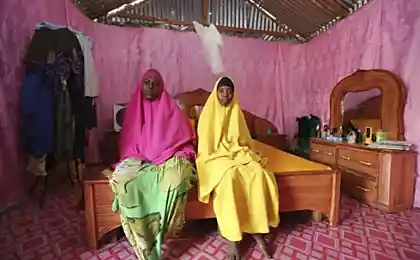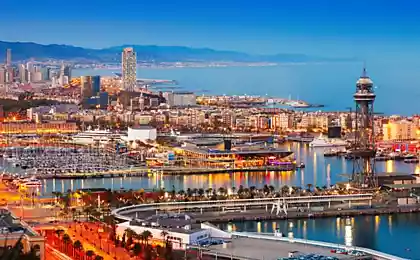2027
In Melanesia live amazing blacks blondes
Miracles genetiki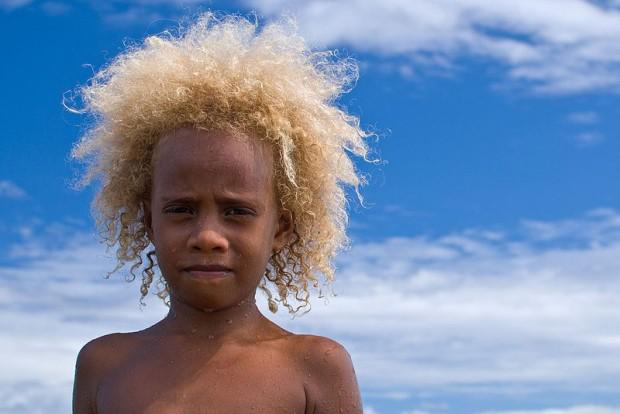
About a quarter of the population of Melanesia in the Solomon Islands archipelago is extremely unusual feature - the dark skin in combination with fair hair. Located to the east of Papua New Guinea in the Pacific archipelago consists of thousands of islands, where more than half a million Melanesians. They - the owners of the darkest skin in the world outside of Africa, but in many color grow blond Afro.
This rare fired the minds of scientists and experts in genetics for many years. Until recently all over the blame heredity: that the gene "blond" got Melanesians from European ancestors - the British, Germans and Australians, who owned the islands for hundreds of years. In the XIX-th century the island was under German jurisdiction, in 1893 the island came to the UK, and in the beginning of XX-th century the British, together with the Australians grown coconut plantations there.
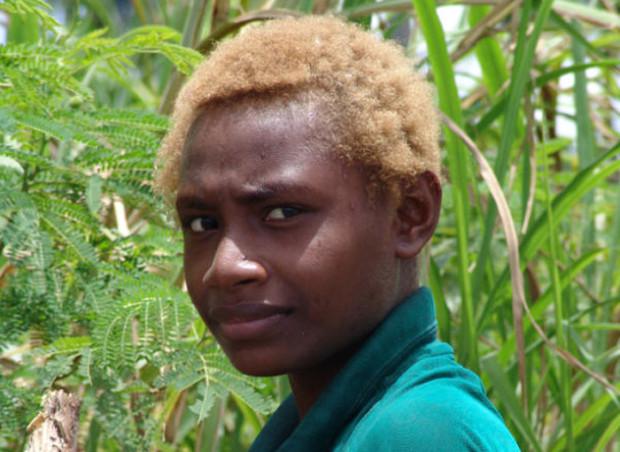
But the local version with about genetics do not agree, even though it seems to be reasonable. They insist that their blond hair - the result of a diet rich in fish and the effects of the sun. But both theories are far from the truth. According to a recent study of the mysteries of the Melanesian blond random mutations may be responsible.
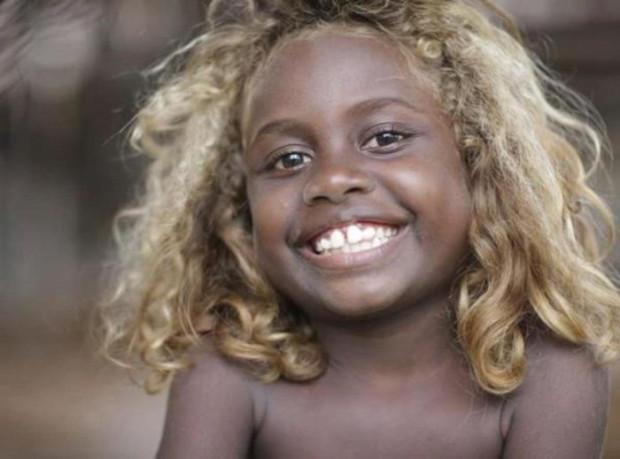
Geneticist from the New Scottish Agricultural College Sean Myles noted that blonde hair all Melanesians are of the same shade. This means that the hair color is regulated genes. Miles and his colleagues decided to find a gene and took samples of saliva and hair of 42 islanders blond and 42 dark-haired aborigines.
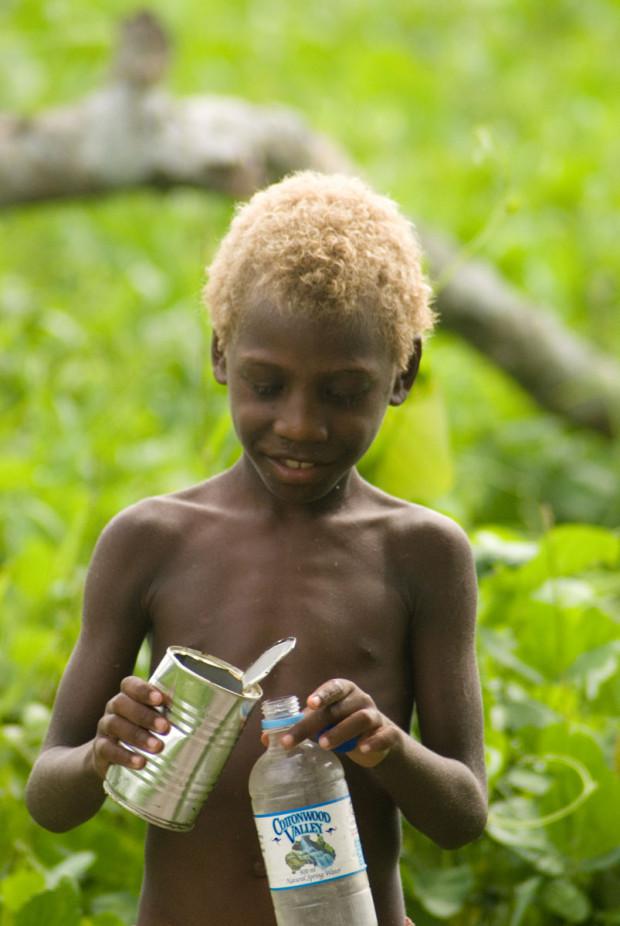
Both groups were very different version of the gene TYRP1, encoding a protein involved in pigmentation. Hair color defines only one amino acid in the protein - cysteine instead of arginine.
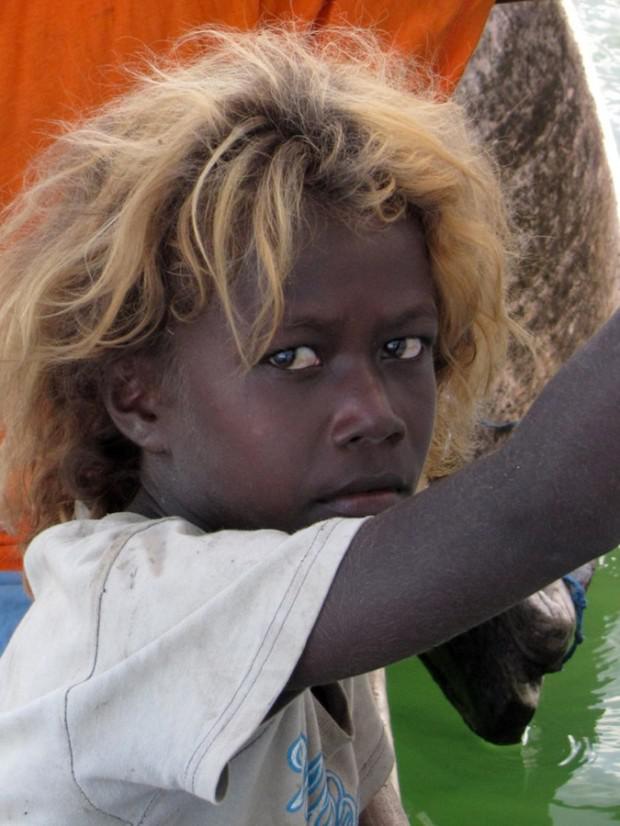
25% of the population of the Solomon Islands - the carriers of the mutated gene. This means that the blond hair color can inherit from both parents. Anthropologist from Temple University in Philadelphia Jonathan Friedlander noted that the mutation likely arose by chance in one person. This seems to be true because the indigenous population of the islands was rather not numerous.
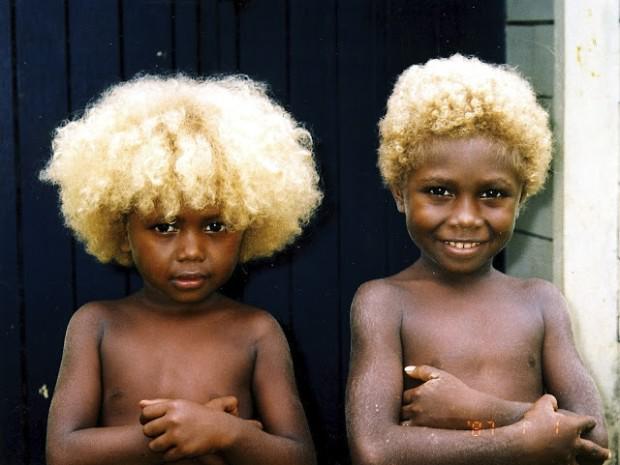
via factroom.ru

About a quarter of the population of Melanesia in the Solomon Islands archipelago is extremely unusual feature - the dark skin in combination with fair hair. Located to the east of Papua New Guinea in the Pacific archipelago consists of thousands of islands, where more than half a million Melanesians. They - the owners of the darkest skin in the world outside of Africa, but in many color grow blond Afro.
This rare fired the minds of scientists and experts in genetics for many years. Until recently all over the blame heredity: that the gene "blond" got Melanesians from European ancestors - the British, Germans and Australians, who owned the islands for hundreds of years. In the XIX-th century the island was under German jurisdiction, in 1893 the island came to the UK, and in the beginning of XX-th century the British, together with the Australians grown coconut plantations there.

But the local version with about genetics do not agree, even though it seems to be reasonable. They insist that their blond hair - the result of a diet rich in fish and the effects of the sun. But both theories are far from the truth. According to a recent study of the mysteries of the Melanesian blond random mutations may be responsible.

Geneticist from the New Scottish Agricultural College Sean Myles noted that blonde hair all Melanesians are of the same shade. This means that the hair color is regulated genes. Miles and his colleagues decided to find a gene and took samples of saliva and hair of 42 islanders blond and 42 dark-haired aborigines.

Both groups were very different version of the gene TYRP1, encoding a protein involved in pigmentation. Hair color defines only one amino acid in the protein - cysteine instead of arginine.

25% of the population of the Solomon Islands - the carriers of the mutated gene. This means that the blond hair color can inherit from both parents. Anthropologist from Temple University in Philadelphia Jonathan Friedlander noted that the mutation likely arose by chance in one person. This seems to be true because the indigenous population of the islands was rather not numerous.

via factroom.ru
General Director of one of the largest airlines in the world gets to work on the bus
The US agency has developed a mirror that makes the self when it is viewed





